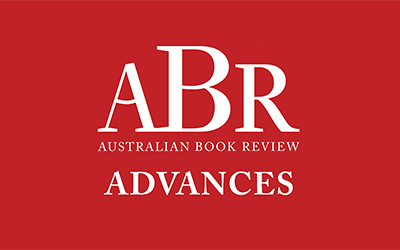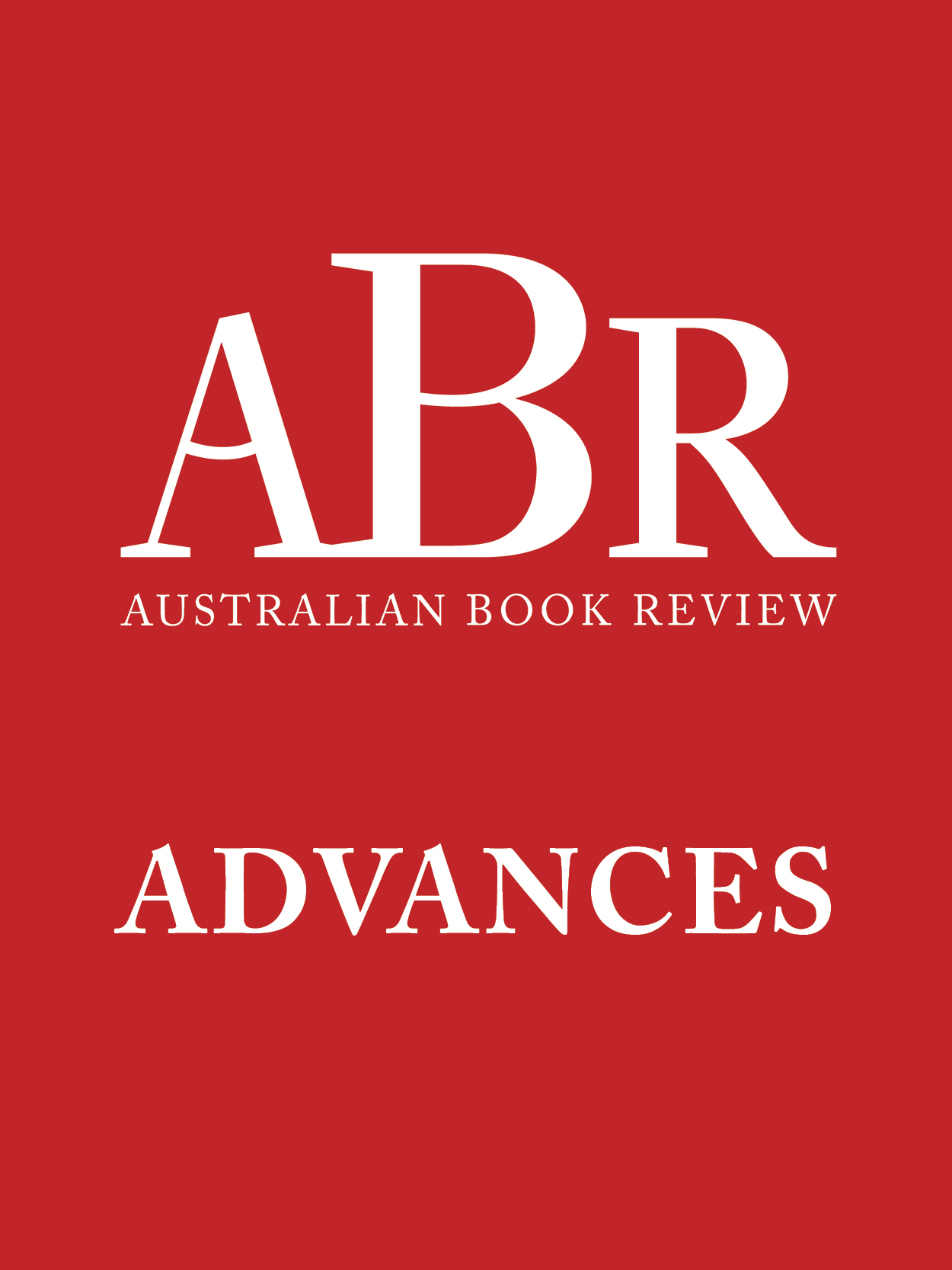- Free Article: No
- Contents Category: Advances
- Review Article: No
- Article Title: Advances – September 2024
- Online Only: No
- Custom Highlight Text:
On 15 August, Advances and about one hundred lovers of short fiction descended on Gleebooks in Sydney for the announcement of the winner of the 2024 ABR Elizabeth Jolley Short Story Prize. Not since January 2020 had ABR presented a prize ceremony in public. Since then, because of the exigencies of Covid-19 and pesky lockdowns, all our celebrations have happened online, and goodness knows the popularity of online events of this kind has begun to wane, like those Zoom soirées and cocktail parties we endured.
- Featured Image (400px * 250px):

- Alt Tag (Featured Image): Advances – September 2024
Gleebooks, recently refurbished, has never looked better; the upstairs function room, groaning with enticing backlist and antiquarian books, is ideal for literary events of all kinds: we recommend it highly.
Longtime ABR Patron Ian Dickson AM makes the Jolley Prize possible in its lucrative form, so it was very fitting that Ian should name the overall winner: Jill Van Epps, author of ‘Pornwald’. Jill, who lives in New York City, could not be present, but she joined us via video. A recording is available on our website.
Jill Van Epps, who receives $6,000 from ABR, had this comment for Advances:
The Jolley Prize has brought my work out of the solitary writer’s cocoon where it’s been encased for so long. How thrilling for the strange little characters I dreamed up to find an audience. This means everything to me. Thank you to Australian Book Review for serving as a meeting place for writers and readers around the world.
Our three judges – Patrick Flanery (who has a wonderful review of the Brent Harris retrospective currently showing in Adelaide on page 36), Melinda Harvey, and Susan Midalia – chose ‘Pornwald’ from an international field of about 1,300 stories. Here is what they had to say about the story in their report:
‘Pornwald’ is a puzzle that tests the limits of realism with an often riotously deadpan sense of humour. Characters move through a world that is superficially familiar, but as the story progresses, all may not be as it initially appears: this is an unpredictable place, wilder than the characters themselves realise. What would it mean, the story asks us to consider, if we were to wake up one day to our own unreality?
Perth-based writer Kerry Greer was placed second ($4,000) for her story ‘First Snow’; and Shelley Stenhouse, another New Yorker, was placed third ($2,500) for ‘M.’. All three shortlisted stories appeared in the August issue of ABR (in case you missed it). They also feature in separate ABR Podcasts, read by the authors.
More information about the 2024 Jolley Prize, including a list of the longlisted authors and the entire judges’ report, can be found on our website.
The Jolley Prize will be back in 2025 – bigger than ever.
ABR Inglis Fellowship
In June, following representations from friends and colleagues of the late Ken and Amirah Inglis, we announced the creation of the ABR Inglis Fellowship to commemorate the Inglises’ life and work, and to continue their active support for young writers and scholars.
Donations from twenty individuals have enabled us to offer a fellowship worth $5,000, and will indeed support a second fellowship in 2025 – and beyond that, we hope. (Inglis Patrons are listed with our other Patrons on page 4.)
Writers and scholars aged thirty-five and under were invited to apply, with a view to contributing three review essays or commentaries in the field of Australian history and culture over the course of twelve months.
We were impressed by the calibre and thoughtfulness of the applications. It was not an easy choice. In the end, ABR Editor Peter Rose and Professor Rae Frances (former Dean of Arts at ANU and Monash University, and a past member of the ABR Board) chose Dr Ruby Lowe to be the first Inglis Fellow.
Ruby Lowe is a settler scholar who lives in Melbourne and writes about printed forms of speech. Her research focuses on John Milton and popular print culture in the seventeenth-century Atlantic world, and Kim Scott and contemporary Australian Aboriginal writing. She told Advances:
I am thrilled to be the inaugural ABR Inglis Fellow, because it will give me the opportunity to explore the history and futures of Aboriginal publishing. Multi-award winning Aboriginal authors ranging from Alexis Wright and Kim Scott to Ellen Van Neerven and Jazz Money are known for their multivocal authorial voices. In this series of articles, I will discuss the role that Aboriginal editors and publishers have played in cultivating the multivocal quality of Aboriginal literature, focusing on both the politics and aesthetics of Aboriginal publishing.
Our new Fellow’s first article will appear in our State of the Book issue in November, which will survey publishing trends, literary magazines, government funding, bookselling, decolonisation practices – with some surprises along the way.
Another happy outcome for writers and ABR alike is that a number of those shortlisted for the Fellowship will, we trust, write for the magazine – not just Dr Lowe, whom we welcome aboard and congratulate.
Ray Lawler (1921-2024)
Ray Lawler, who died on 24 July aged 103, wrote many plays, but it was his tenth, Summer of the Seventeenth Doll, that secured his reputation as one of Australia’s finest playwrights.
The Doll, as it is fondly known, had its première in Melbourne on 28 November 1955, and soon travelled to London and New York. Leslie Norman directed the 1959 Hollywood version, which was released as Season of Passion in America. Despite the starry cast – Ernest Borgnine and John Mills (see the still on page 39), Anne Baxter, and Angela Lansbury – it was not a success. Lawler himself played Barney Ibbot in the Australian and London première (future magnate Richard Pratt was Johnnie Dowd in London).
After the London production, Lawler lived for many years in Denmark, England, and Ireland. On his return to Australia in 1979 he became associate director of the Melbourne Theatre Company, one of whose theatre spaces in Southbank is now named after him.
Lawler was not done with The Doll yet. Two prequels followed: Kid’s Stakes in 1975, Other Times in 1976. The Doll Trilogy was first presented in its entirety on 12 February 1977.
John Rickard (1935-2024)
ABR lost one of its senior contributors – and a stalwart Patron – on 26 July when historian John Rickard died, aged eighty-nine. John wrote for the magazine on forty occasions, over as many years. His first article appeared in our twentieth issue (May 1980): a review of R.W. Connell and T.M. Irving’s Class Structure in Australian History: Documents, narrative and argument.
John took up a lectureship in History at Monash University in 1971. He was Professor of Australian Studies on his retirement from Monash in 2000. His books included H.B. Higgins (1984), Australia: A cultural history (1988), A Family Romance: The Deakins at home (1996), and An Imperial Affair (2013), a memoir of his parents’ marriage.
John remained a keen contributor to historical debate at his old university, as Professor Graeme Davison attested in his eulogy at John’s funeral.
A true Jamesian, Rickard was always a sagacious contributor to the only club that will have our Editor: the Henry James Reading Group, which Peter Rose created in the 1990s.
A lifelong theatregoer, John was also a thespian and a singer before he turned to history. He returned to Australia for the 1962 production of The King and I.
John first saw Summer of the Seventeenth Doll in 1957 – ‘in London, of all places’. Later he would recall feeling some pride in seeing the famous kewpie doll presiding over the New Theatre in the West End. So this seems like the perfect time to reprint John’s discerning critique of Neil Armfield’s celebrated 2012 revival of The Doll at the Belvoir Theatre. His review was first published in March 2012.



Comments powered by CComment